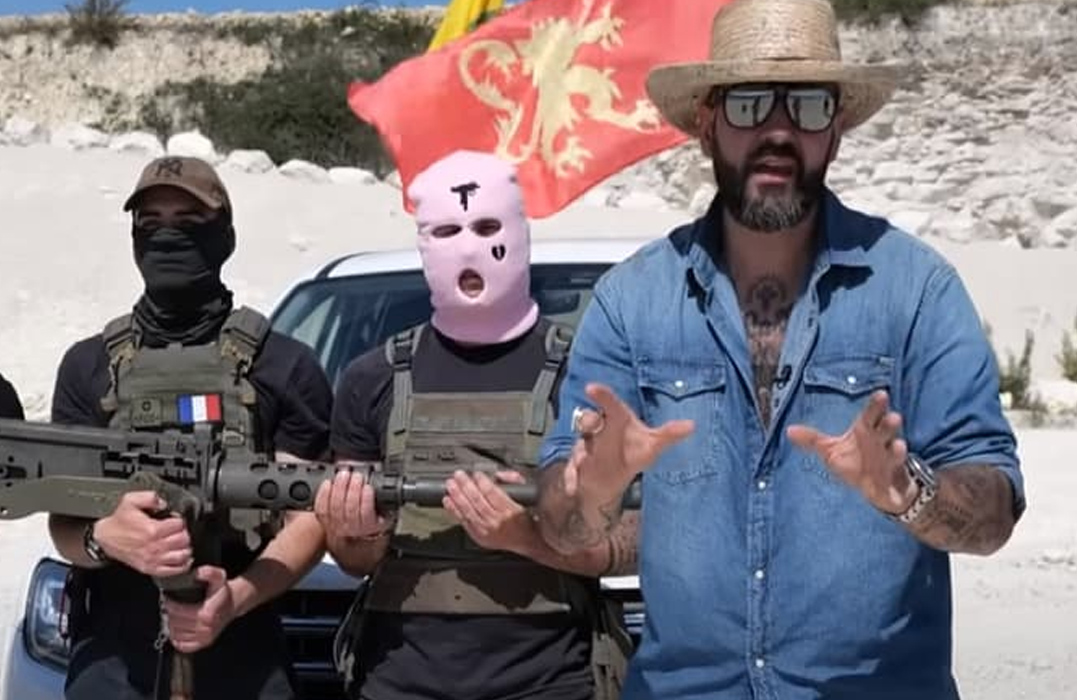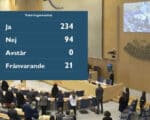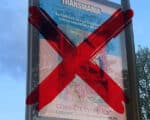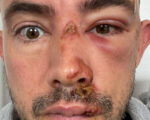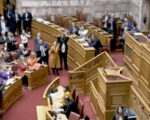>> Art Attack: Why we shot ‘Same Love’ video in Kenya
[spacer]
L’Autorité kényane de classification des films (KFCB) réclame à Google la suspension pour « raisons morales » d’une vidéo sur YouTube, mise en ligne par des musiciens locaux et sympathisants LGBT accusés désormais de « promouvoir l’homosexualité », punie par la loi depuis la colonisation britannique.
« Notre pays ne doit pas permettre aux gens de devenir des “Sodome et Gomorrhe” à travers une incitation psychologique de la part de tels contenus », a insisté dans son ordonnance délivrée le 22 février dernier l’organe public.
« Il ne s’agit pourtant d’en faire l’apologie mais de dénoncer le traitement discriminatoire subi par les homosexuels au Kenya », rétorque dans un podcast sur un portail nigérien pro-égalité l’un des membres du groupe « Art Attack », qui a réalisé le clip pour illustrer une reprise, adaptée aux spécificités kényanes, de la chanson « Same Love », du duo américain Macklemore et Ryan Lewis.
« La plupart de nos amis gays et lesbiens ont été d’une façon comme une autre agressés en raison de leur orientation sexuelle. Nous vivons ces horreurs au quotidien. Et nous avons estimé en tant qu’ART-ivistes, incitant à des changements sociaux, qu’il était nécessaire de réagir, d’interpeller les gens, sensibiliser le plus de monde possible à la question, pour espérer plus de tolérance et de respect. On ne choisit pas son orientation sexuelle, comme le répète le refrain dans la chanson. Certains ont bien tenté de le faire, mais ça ne marche pas ! », poursuit le jeune homme. On ne peut pas aller contre la nature justement…
[spacer]
[spacer]
En mai 2015, le vice-président kényan William Ruto affirmait pourtant dans la presse que les homosexuels n’avaient pas leur place au Kenya « car cela viole nos croyances religieuses et culturelles », précisait-il. Ces déclarations intervenaient alors même que le secrétaire d’État américain John Kerry était en visite officielle dans le pays, pour discuter notamment de droits humains. Au mois de juillet suivant, c’était le président Barack Obama, qui comparant l’homophobie à la discrimination raciale qu’avait connue les États-Unis, réitéré son désaccord avec la position des autorités kényanes, mais en vain. Le président Uhuru Kenyatta lui rétorquait que « les droits des homosexuels ne constituaient pas une préoccupation majeure ! »
Conscients des tensions, les membres du groupe préfèrent bien évidemment éviter de révéler leur identité par crainte des représailles. Mais, en fustigeant leur message, les autorités lui ont au contraire fait écho, et la vidéo est devenue virale et continue de cumuler des dizaines de milliers de vues et partages. Une visibilité auquel « Art Attack » n’aurait jamais osé imaginer. Mais, si la formation n’envisageait pas d’en faire un étendard, les membres n’excluent pas de reproduire l’initiative pour défendre l’égalité et l’amour.
De son côté la filiale du géant américain s’est déclarée incompétente aux réclamations formulées, et renvoie le régulateur Kényan à son siège aux États-Unis.
Terrence Katchadourian
stophomophobie.org
[spacer]
>> Kenya is one of the many African countries that — out of ignorance and denial — regard homosexuality as un-African, immoral, and unnatural. The country largely considers homosexuality to be taboo and repugnant to its cultural values and morality.
Such homophobia should not go unchallenged, so the Kenyan music group Art Attack recorded an appeal for acceptance, tolerance and a better understanding of homosexuality with Africa.
“We are not telling people to be gay,” one member of Art Attack told the NoStrings podcast. “We are saying, ‘Let them be.’ ”
Art Attack’s song “Same Love” is about same-sex rights, LGBT struggles, gender equality, gay struggles and civil liberties for all sexual orientations.
Those values are a far cry from the homophobic attitudes of Kenyans who demonize, criminalize and discriminate against people on the basis of their sexual orientation. Kenyan law even provides up to 14 years in prison for homosexual activity, and 21 years in certain aggravated circumstances.
On YouTube, the video for “Same Love” has attracted about 116,208 views and over 859 positive and negative comments. Gay Times describes the music as “a remix of Macklemore’s ‘Same Love,’ with Kenyan rappers Art Attack replacing his lyrics with their own – while the music video features home-shot footage of a gay and a lesbian couple, shots from the TV series ‘Empire’ and footage from riots and equality marches.”
The video caused an outrage amongst homophobes in the country, who cried out that the video was promoting immorality and thus should be banned. This moved the Kenya Film Classification Board to ban the video of the song, and issued a letter to Google to take down the video from YouTube, but Google refused and replied in a follow-up letter that banning the video would be an infringement on freedom of expression.
The Nigerian LGBTIQ podcast NoStrings interviewed a member of Art Attack to discuss the video, its concept, and the controversy that the video generated.
In the interview, the leader of the music group, who described himself as a rapper and songwriter, said of the group:
“We call ourselves Art-tivist because, most of our stuffs are geared toward social change, and motivated mostly around what we see around the social circles in Kenya.
For his safety at home in Kenya, his name is not used in the podcast.
When asked why he advocates for LGBT rights, he said:
“I felt the need to do a song about LGBT rights after some of my friends who are gays and lesbians started telling me about the bad things that were experiencing in Kenyan society. I live in Kenya, and I know how and what life is like for them, so I decided to record a song that will speak positively to the situation.”
He spoke about threats and negativity he experienced as a result of the video:
“We knew that, obviously, these will not be well appreciated by the larger Kenyan population who kicks against homosexuality, but we needed to do what we have to do. But yes, it was such a huge risk, there has been a lot of controversy especially around the video of the song, because of its erotic content and overall message.”
Although many people complained that Art Attack is encouraging homosexuality in their song, he denied it:
“We are only encouraging a positive message of love and respect, and discouraging violence against gay people. We are not telling people to be gay, but we are saying, ‘Let them be.’ ”
Outside of his music and his advocacy, he also spoke about his own personal view of homosexuality:
“I don’t mind. I don’t think I completely agree with what [homosexuals] do.
“I am not gay myself. I love women. I have a girlfriend. But, hey, let people do their thing. That’s what we have always wanted. Let people be themselves.”
Art Attack is not planning on releasing an entire LGBT-related, LGBT-friendly album, but if they are pushed, they may end up doing more LGBT songs, he said.



